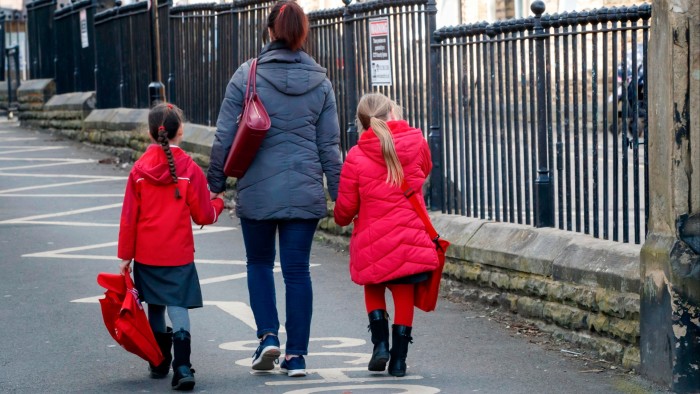Unlock the Editor’s Digest for free
Roula Khalaf, Editor of the FT, selects her favourite stories in this weekly newsletter.
Chancellor Rachel Reeves will stop short of fully scrapping the two-child benefit cap hated by many Labour MPs in next month’s Budget, according to people briefed on her plans.
Reeves is expected to announce measures to tackle child poverty on November 26 but Labour MPs concede that finding £3.5bn to abolish the two-child limit against such a grim fiscal backdrop would be tough.
The chancellor is facing a fiscal hole estimated by economists at £30bn or more, exacerbated by a worse than expected downgrade to official productivity forecasts.
One Labour official said Prime Minister Sir Keir Starmer had indicated at the party’s annual conference in September that he would address problems raised by the cap and that the “end results will be seen in the Budget”.
The official added that a full scrapping of the limit was not expected, but other measures would be announced: “There are live discussions but it’s not a binary thing. There are lots of different ways of doing it.”
In July, Reeves indicated she could not afford to spend £3.5bn on ending the two-child cap, introduced by the Conservative government in 2017, after Labour MPs rejected her plan to cut the national welfare bill by £5bn.
Pressure has been mounting on the chancellor to act, with Labour’s new deputy leader Lucy Powell leading calls for a reversal of the two-child cap. But support for the idea is far from universal among Labour MPs.
Some Labour MPs are anxious about how they would sell to working families in their constituencies the idea that they will have to pay higher taxes in the Budget, while at the same time benefits to parents with multiple children will increase.
“Obviously almost all MPs want it removed, but we seriously need to think about the optics of increasing income tax while removing the cap,” said one Labour MP representing a middle-class seat in southern England. Another MP said: “It would be mad if it did happen.”
Reeves was photographed in Downing Street on Wednesday with her diary on display. It had a meeting scheduled to discuss “child poverty”.
Several alternatives to scrapping the two-child benefit limit have been mooted, although the left-leaning Resolution Foundation think-tank has argued that failing to abolish it would wreck the government’s child poverty ambitions.
The options include raising the cap to cover three children, exempting families where at least one adult is in paid work, or removing the cap but paying a reduced child benefit element — around two-thirds of the full rate — for third and subsequent children.
“Any of these half measures would mean that poverty actually increases under this government,” said Alex Clegg, an economist at the Resolution Foundation. “They are all pretty bad policies.”
Other proposals that have been under discussion include exempting families with a disabled child, or those with children under five, delaying the cap until the youngest turns five.
A government spokesman declined to comment on Budget “speculation” and said its child poverty task force would soon publish “an ambitious strategy to tackle the structural and root causes of child poverty”.
The spokesman added: “We are investing £500mn in children’s development through the rollout of Best Start family hubs, extending free school meals and ensuring the poorest don’t go hungry in the holidays through a new £1bn crisis support package.”

